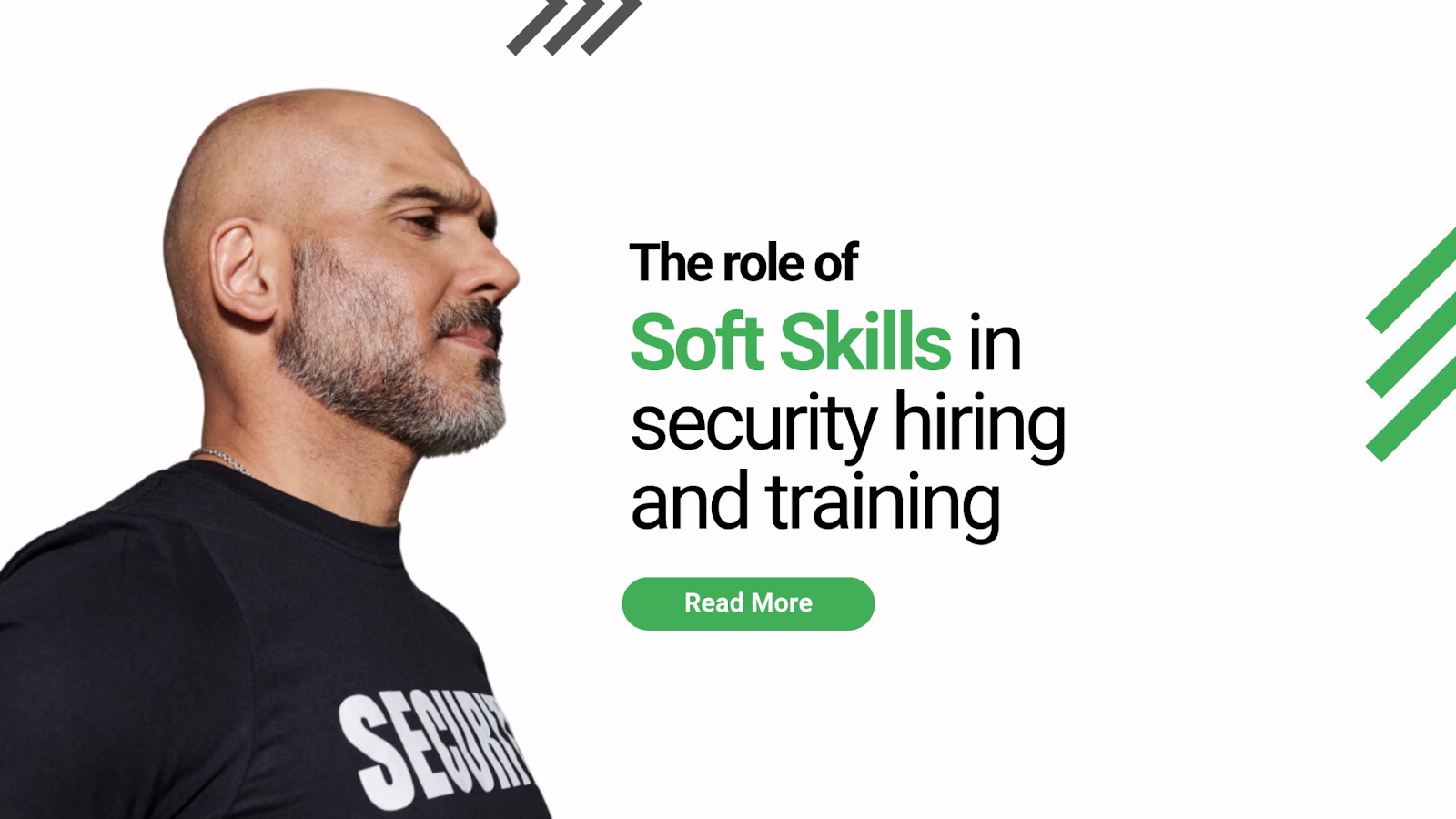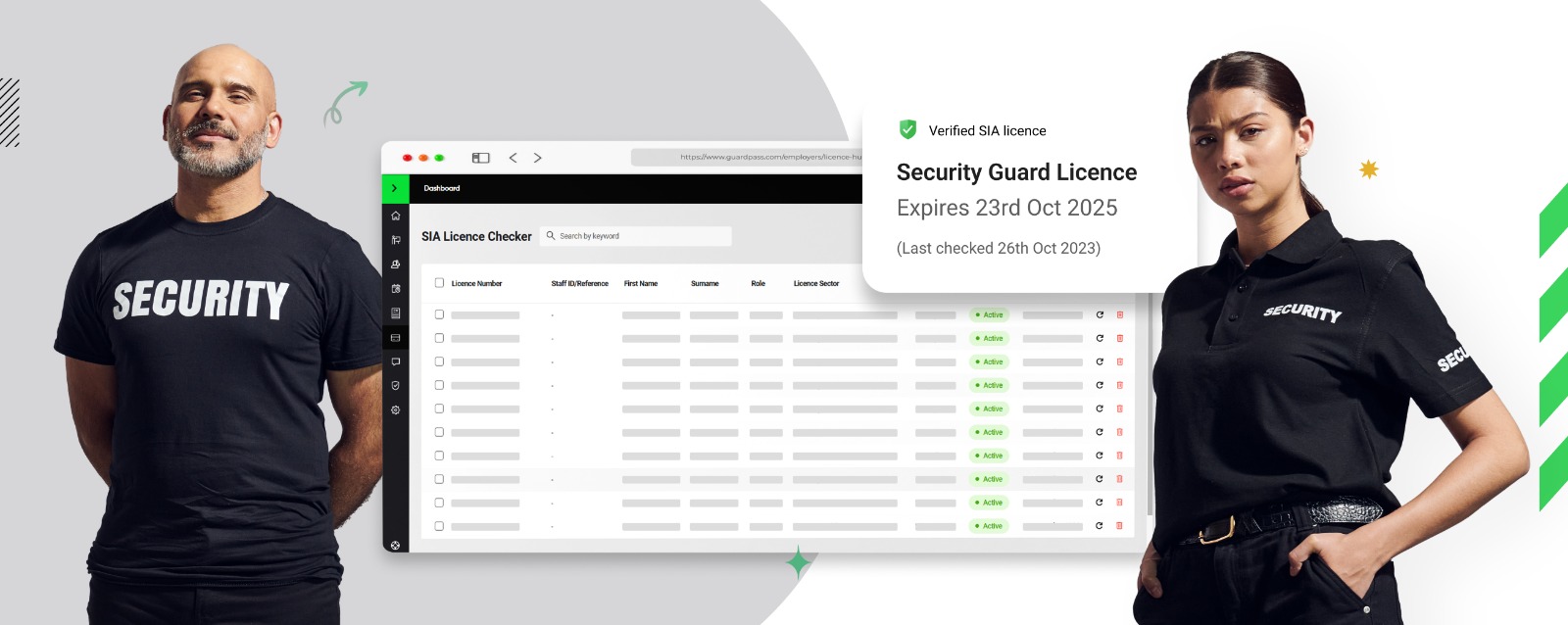In the security industry, toughness and physical prowess might be the first qualities that come to mind. But there’s more to it than just muscle and a stern demeanour. You see, the security world isn’t all about brute force. It’s also about the power of soft skills.
What are soft skills, you ask? Well, let’s break it down. Soft skills are those personal attributes that make it easier for security professionals to interact harmoniously with one another. They’re often called interpersonal skills or people skills. These abilities are essential in any line of work, but in the security sector, they’re absolutely crucial.
Essential soft skills for security professionals
Imagine a security professional who needs help communicating clearly and working effectively with a team. That would be like a knight without a sword or a shield – ineffective and unprepared. So, what soft skills should security professionals have up their sleeves?
✅ First off, there’s “communication.” It’s all about effectively conveying ideas, thoughts, and information. In a world filled with complex security matters, explaining things clearly, both in writing and verbally, is a game-changer.
✅ Next up, we have “teamwork.” Security isn’t a one-person show; it’s a team effort. Professionals in this field must collaborate with others to reach common goals and solve problems.
✅ Then there’s “problem-solving.” Security pros need to be quick on their feet when challenges arise. They’ve got to identify issues, make sound decisions, and think critically, even under pressure.
✅ “Attention to detail” is another crucial skill. Spotting potential security risks and threats requires a keen eye. Following security procedures to the letter is necessary in this line of work.
✅ Last but not least, “customer service” matters too. Security professionals should be able to provide top-notch service, dealing with people professionally and courteously. Handling customer complaints and concerns effectively is all part of the package.
Why soft skills are essential in the security industry
In the security world, it’s not just about qualifications or years of experience – it’s about finding the right candidates who can handle any challenge. At GuardPass, we get it. We know that every security pro is unique. So, we came up with something special: Skill Badges.
Skill Badges aren’t any typical badges; they’re game-changers in the hiring game. They’re like visual proof of a candidate’s skills and qualifications, making it a breeze to find your dream security team member. Don’t just take our word for it – Paul Svetukaitis, Recruitment Manager at Interr, says, “We’ve been using ‘GuardPass’ for over a year now, and it’s been a lifesaver. Their team helped us find top-notch security officers for our clients. Thumbs up!”
From communication wizards to hands-on heroes and peacemakers, these badges spill the beans on a candidate’s skills. GuardPass is all about keeping hiring simple and making sure you find the right security stars. Your team deserves the best, and that’s exactly what Skill Badges deliver. Ready to transform your hiring game? GuardPass is your secret weapon!
The changing face of security skills: What lies ahead
What about the skills required for tomorrow? Let’s take a closer look at the evolving security skill set:
✅ Digital proficiency: With technology’s ongoing influence, as a security professional you must be digitally proficient. This means understanding modern security tools and digital environments.
✅ Crisis management: Effective crisis management is more crucial than ever. Security teams need to be well-versed in emergency response, handling unexpected situations, and maintaining composure under pressure.
✅ Cultural savvy: In today’s global landscape, being culturally aware is vital. Understanding different customs, respecting diverse perspectives, and fostering harmony in a multicultural world.
As the security industry evolves, so do the skills required. Preparing for the future means embracing these emerging areas alongside traditional soft skills. By staying adaptable and continuing to learn, you can lead the way into the future of security.
Summary
Now, let’s wrap up with some extra tips to enhance your approach to hiring and training for soft skills in security:
✅ Be clear about the soft skills required for the job. What are the most critical soft skills for your security professionals? List these skills in the job description and ask questions during interviews.
✅ Use a variety of assessment methods. Behavioural interviews, reference checks, and skills assessments can all provide a well-rounded view of candidates’ soft skills.
✅ Provide ongoing training. Remember, soft skills can be developed over time, so offer security professionals continuous training opportunities. This could include role-playing exercises, mentoring, and coaching, or enrolling in soft skills training courses.
✅ Create a culture of feedback and continuous improvement. Encourage security professionals to give each other feedback on their soft skills and work on improving them over time.
By following these tips, your organisation can create a more effective and secure workforce by hiring and training for soft skills in security. So, if you’re in the security industry and want to build a team that stands out, remember that it’s not just about muscle and might – it’s also about the power of those essential soft skills.
And if you’re looking for security professionals with the right blend of soft skills, check out GuardPass. We’ve got the top SIA-approved security professionals in the UK ready to bring their unique mix of expertise and interpersonal skills to your team.
Estimated reading time: 5 minutes



